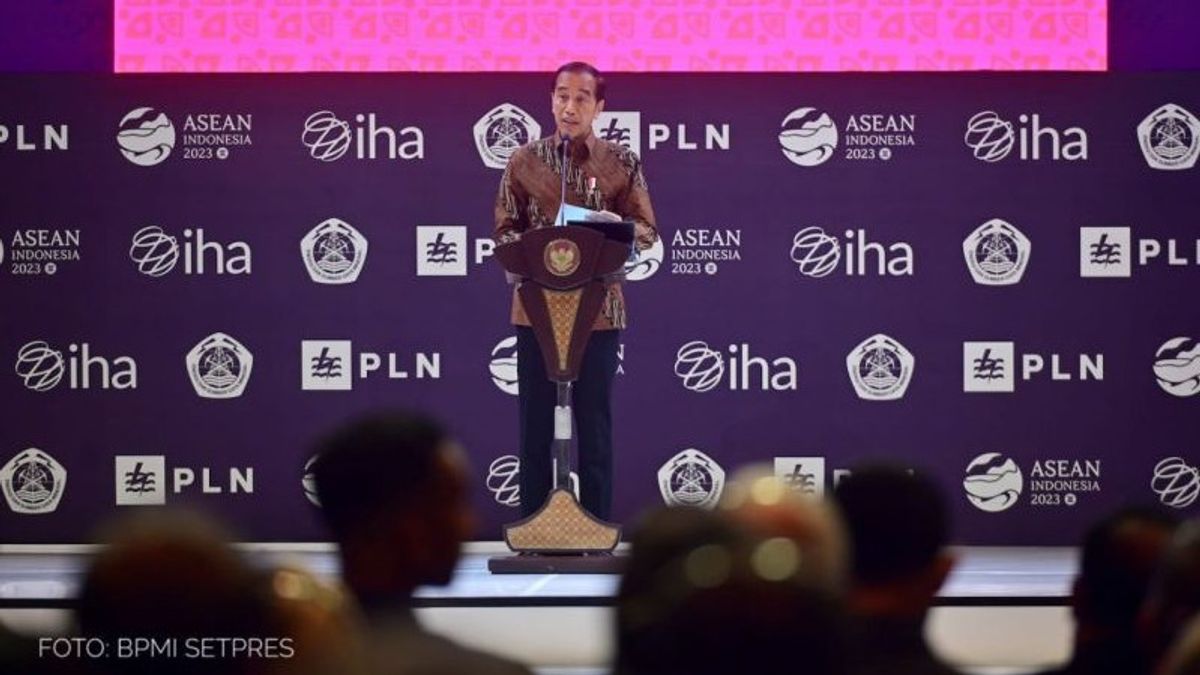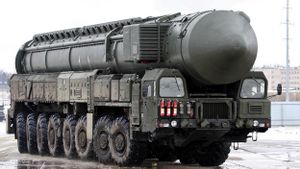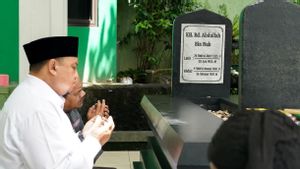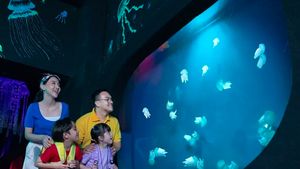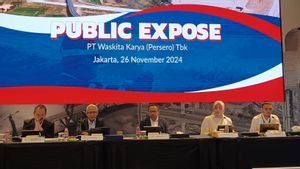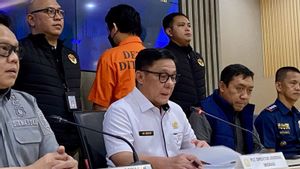JAKARTA - President Joko Widodo said that Indonesia is fully committed to accelerating the energy transition through increasing the use of new and renewable energy (EBT) on a large scale considering the status of Indonesia, which is rich in natural resource potential.
"Based on calculations, (EBT potential) is estimated to reach 3,600 gigawatts (GW), both from solar energy, wind, geothermal heat, ocean currents, waves, bioenergy, and also from hydropower," said Jokowi at the 2023 World Hydropower Congress (WHC) Opening in Nusa Dua, Badung, Bali, as reported by Antara, Tuesday, October 31.
In a statement quoted from the official website of the Ministry of Energy and Mineral Resources in Jakarta, Wednesday, President Jokowi said Indonesia has more than 4,400 potential rivers, of which 128 are large rivers.
"The Mamberamo River which has a potential of 24,000 MW. The Kayan River has a potential of 13,000 MW, this is in Kalimantan which will later be used for green industrial park electricity sources in Kalimantan. This is a huge potential that we can take advantage of for the future of Earth and its next generation," said President Jokowi.
However, Indonesia faces various challenges, one of which is related to the location of hydro resources, which are far from the center of electricity demand. The government has also made a blueprint for accelerating transmission lines to overcome these challenges.
"The Indonesian government has made a blue print of accelerating transmission routes connecting hydropower locations to economic growth centers and industrial growth centers, so that the value of their benefits becomes higher," he explained.
Another challenge is related to funding and technology transfer. President Jokowi stated that to face these challenges, investment and collaboration with the hydro ecosystem in the world is needed.
"Another challenge is funding and technology transfer. Where this requires a lot of investment and requires collaboration with all the strengths of the hydro ecosystem in the world. I hope this WHC can become a collaborative forum that produces policy recommendations and increases investment for the benefit of water energy for a sustainable green economy," he explained.
Meanwhile, Minister of Energy and Mineral Resources (ESDM) Arifin Tasrif said that renewable energy is expected to encourage industrial development and contribute to energy security and achieving Indonesia's Net Zero Emission (NZE) target by 2060 or sooner.
"The Indonesian government has committed to carrying out an energy transition to achieve NZE by 2060. In line with this commitment, this congress will produce recommendations, which are planned to be issued at the end of the congress and will be submitted to COP28," he said.
The English, Chinese, Japanese, Arabic, and French versions are automatically generated by the AI. So there may still be inaccuracies in translating, please always see Indonesian as our main language. (system supported by DigitalSiber.id)
Most Popular Tags
#Prabowo Subianto #golkar #OTT KPK #Pilkada Dki #online gamblingPopular
26 November 2024, 07:00
26 November 2024, 06:05
26 November 2024, 06:00
